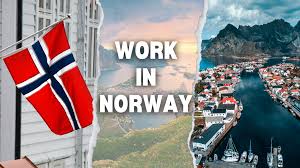Manpower Supply in Government Projects: Role of an Action Mediator
In government projects, the successful implementation of tasks often hinges on the availability of skilled and reliable manpower. An action mediator plays a pivotal role in facilitating the manpower supply process, ensuring that government initiatives are executed efficiently and meet their intended objectives. Here’s how action mediators contribute:
1. Assessing Manpower Requirements
Collaborates with government officials and project managers to determine the workforce needs based on the project’s scope, scale, and timeline.
Identifies the specific skills, qualifications, and experience levels required for various roles.
2. Recruitment and Selection
Sources suitable candidates through networks, recruitment agencies, or direct hiring.
Ensures that selected personnel meet the qualifications and standards required by the government project.
Manages the onboarding process, including background checks, documentation, and orientation.
3. Coordination and Deployment
Aligns manpower deployment with the project schedule, ensuring that workers are available when and where they are needed.
Handles logistical arrangements such as transportation, accommodation, and worksite allocations.
Addresses any delays or gaps in workforce availability promptly.
4. Compliance and Documentation
Ensures that the recruitment and deployment processes comply with labor laws and government regulations.
Maintains accurate records of personnel, including contracts, certifications, and attendance.
Oversees worker safety and adherence to occupational health standards.
5. Training and Skill Development
Organizes training programs to ensure workers are equipped with the necessary skills for the project.
Facilitates workshops and refresher courses to enhance productivity and compliance with government standards.
Addresses skill gaps through targeted development initiatives.
6. Monitoring and Supervision
Supervises manpower performance to ensure tasks are completed efficiently and to the required standard.
Acts as a mediator between the workforce and project management, addressing grievances or concerns.
Provides regular updates to project stakeholders on manpower performance and challenges.
7. Conflict Resolution
Mediates disputes among workers or between workers and project managers.
Ensures that conflicts are resolved amicably to prevent disruption in project execution.
Implements fair and transparent grievance redressal mechanisms.
8. Ensuring Cost-Efficiency
Manages manpower supply within the allocated budget, avoiding cost overruns.
Optimizes resource allocation to maximize efficiency and minimize waste.
9. Adapting to Changing Needs
Adjusts manpower levels based on project progress, scaling up or down as required.
Anticipates future workforce requirements to ensure uninterrupted project execution.
10. Contribution to Project Success
By ensuring the timely and efficient supply of skilled manpower, action mediators play a key role in meeting project deadlines.
Their efforts contribute to the overall success of government initiatives, ensuring public resources are utilized effective
An action mediator’s role in manpower supply is essential for the seamless execution of government projects. Their expertise in recruitment, coordination, and compliance ensures that the right people are in place to achieve project objectives efficiently and effectively.



